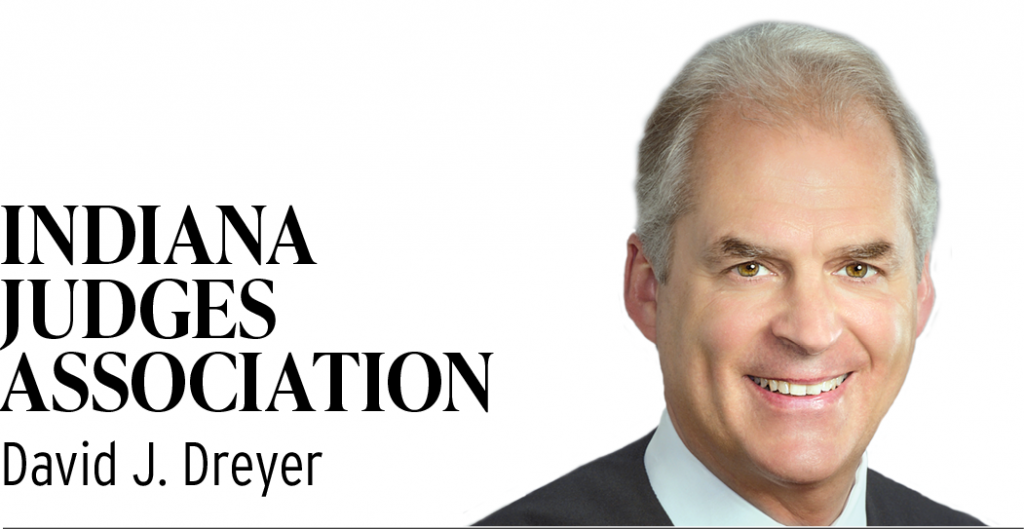Subscriber Benefit
As a subscriber you can listen to articles at work, in the car, or while you work out. Subscribe Now “When judges determine what a law is, they are actually declaring something, not discovering it.”
“When judges determine what a law is, they are actually declaring something, not discovering it.”
-Professor James C. Raymond
Some time ago, a witness approached the stand, looked at me on the bench and said, “Does it make any difference what I say?” When I swore the witness, there was another comment: “This doesn’t make any sense because nobody knows if I’m telling the truth.” Overall, the witness was right. But the point was not the truth or not, but rather the process of adjudication and the determination of a result.
“Truth” in courts of law is whatever the factfinder decides. This has often bothered me, of course, but has not stopped me from doing it for over 25 years. We judges have to hope that our decisions are at least mostly compatible with what really happened. But there are some cases in which no one ever really knows. For example, there are many auto accident cases that have no witnesses, and the drivers’ trauma or injuries leave no personal knowledge. All judges have faced countless instances of “he-said-she-said” scenarios but have to make a decision. This is where the burden of proof comes in handy. There does not have to be definitive undisputed evidence — just enough inferences to weigh more heavily.
After presiding over more than 300 jury trials, I am still struck by the awkward courtroom silence when a verdict is reached, the bailiff is sent to bring in the jury and we wait. During that long moment, I wonder if the result is right, based on the evidence or not — did they understand the case? I do not even have to actually believe it; just make sure it makes sense.
A Virginia law professor recently published an article that claimed to empirically prove that 90% of all court rulings are “easy.” Well, that still leaves a whopping 10% that are not easy — thousands of cases. Because courts are seemingly relegated to a kind of quasi-certitude and bound by general rules, how do we solve the “hard” cases? What if logic only takes us so far? Professor James C. Raymond, formerly of the University of Alabama, has studied the role of logic in the legal system. He writes, “… (W)e have to make decisions — to decide cases and draft laws — on the basis of evidence that is merely probable, and logic that is not entirely conclusive.” If he is even partly correct, that common computer concept — garbage in, garage out — can seem troubling. If we can only depend on whatever evidence the record presents, our decisions may be logical but miss the mark. Professor Raymond further thinks that “… we make numerous (legal) decisions … without the comfort of conclusive evidence.” He sees legal language as “rotten with ambiguity” and says legal arguments “ignore the rules of classical logic.” Nevertheless, he maintains that legal reasoning, despite its “pretense of logic,” serves a useful purpose to decide cases.
A fascinating article published last year at the U.S. Military Academy West Point analyzes the limits of logic in combat preparation. It describes a field training exercise in which cadets are given a problem to solve — and when they find “the answer,” they are directed back to find another solution, even if the first one is good. “Logic’s core teaching,” the article reads, “is that there is one optimal plan.” But there is a basic conflict. On the one hand, logic has supremacy because it uses the data and the rules to determine the result. On the other hand, the data is not perfect and rules are always changing (or can be interpreted in various ways). “Logic can never completely impose its will,” the article continues. Given the same facts and same law, different judges still come up with different decisions, even on “easy” cases. So narrative thinking is what West Point teaches. “The human brain is not especially logical,” the article explains, but it “is, however, innately adept at narrative.” Instead of determining what must be, it reveals what could happen. Narrative equips our brain to run the scientific method in a conditional mode, ready to adapt when it doesn’t work.
So using black letter law only takes us so far. There will be horizons that we must reach for which there is no road except our own narrative creativity. In those times, judges can step back, put aside the briefs, and realize what provokes, motivates or encourages the parties. Beyond certainty and faux infallibility, there are alternatives that can resolve cases. Once I had a final jury argument so convoluted between the parties (and all their objections and interruptions) that no one could figure out how exactly to proceed. So, I pointed at one party and said, “To sum up,” then repeated it several times, going back and forth until everybody got their points across in a fair way. Rules of procedure would not have helped.
Judges often walk a tightrope. Decisions have to be made, and the net below may not be as safe as we hoped.
Thinking outside the box is not just a slogan, but a reality for most courts. If making “sense” is not as logical as we sometimes think, our “root source,” according to West Point, is narrative. After 25 years, I can salute that.•
__________
Senior Judge David J. Dreyer presided as a judge of the Marion Superior Court from 1997-2020. He is a graduate of the University of Notre Dame and Notre Dame Law School and a former board member of the Indiana Judges Association. Opinions expressed are those of the author.
Please enable JavaScript to view this content.
